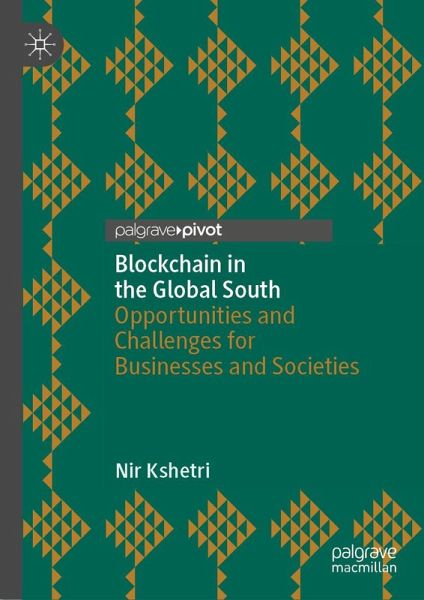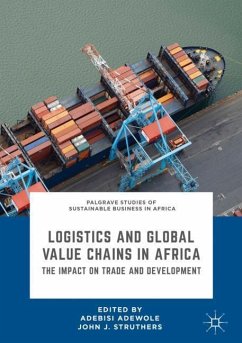
Blockchain in the Global South
Opportunities and Challenges for Businesses and Societies

PAYBACK Punkte
17 °P sammeln!
This book discusses the unique and unusual characteristics of the blockchain and the industries and markets affected by this technology in the Global South. Its main objectives are to 1) provide a comprehensive review of economic, health, social, political, entrepreneurial, and environmental impacts of blockchain, 2) present evidence from countries, industries, and firms to broaden the understanding of the contexts, mechanisms, and outcomes associated with blockchain projects, and 3) analyze the enablers and opportunities that can be tapped and barriers that may impede the implementation of bl...
This book discusses the unique and unusual characteristics of the blockchain and the industries and markets affected by this technology in the Global South. Its main objectives are to 1) provide a comprehensive review of economic, health, social, political, entrepreneurial, and environmental impacts of blockchain, 2) present evidence from countries, industries, and firms to broaden the understanding of the contexts, mechanisms, and outcomes associated with blockchain projects, and 3) analyze the enablers and opportunities that can be tapped and barriers that may impede the implementation of blockchain projects in these economies.
Given that in many way blockchain has a much higher value proposition for economies in the Global South than for their counterparts in the more developed Global North, it has the potential to make up for the lack of effective formal institutions - rules, laws, regulations, and their enforcement - as well as improve administrative aspects, suchas maintenance of standards, monitoring and compliance. This work fills a gap in scholarly research and will appeal to researchers interested in the potential of blockchain to boost entrepreneurship, reshape governance, improve supply chain efficiency, and curb corruption in emerging economies.
Given that in many way blockchain has a much higher value proposition for economies in the Global South than for their counterparts in the more developed Global North, it has the potential to make up for the lack of effective formal institutions - rules, laws, regulations, and their enforcement - as well as improve administrative aspects, suchas maintenance of standards, monitoring and compliance. This work fills a gap in scholarly research and will appeal to researchers interested in the potential of blockchain to boost entrepreneurship, reshape governance, improve supply chain efficiency, and curb corruption in emerging economies.














